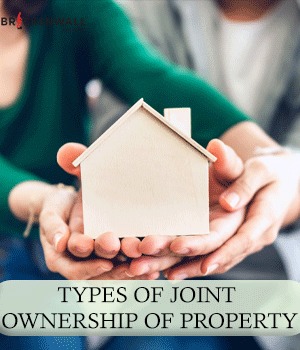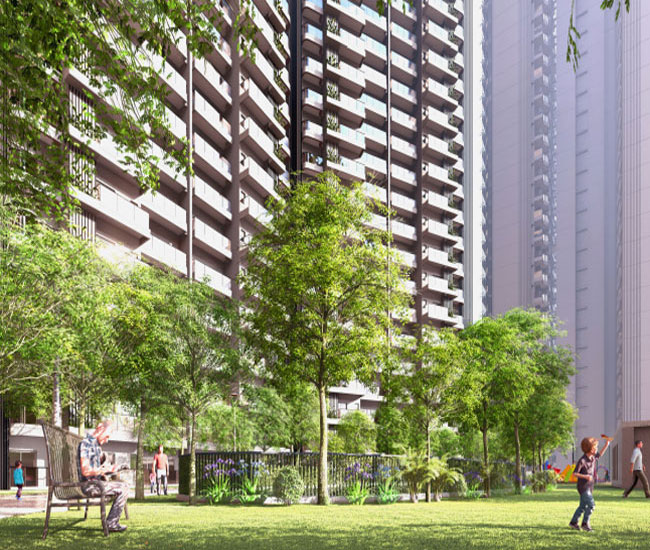How to Determine the Best Listing Price for Your Home
Bricksnwall Trusted Experts

One of the most exciting aspects of preparing to
sell your home is determining the appropriate list price. However, a list price
does not guarantee the amount you will receive for your home, and an erroneous
list price may cost you money, time, or both.
Choosing a list price for your house is not easy. A
variety of factors can impact your decision, including the current market in
your area, the condition of your home, and even your personal sentimentality.
Not every seller can determine the best list price
on their own, which is why a real estate agent is an invaluable resource when
making this decision. Your real estate agent can assist you in determining the
appropriate number to attract potential buyers and reduce days on the market,
all while keeping the most money in your pocket.
Comparing list and selling prices
It is vital to realize that a home's list price
does not equal its sale price. The list price is the seller's asking price, but
the sale price is the price at which the residence is sold. Several reasons
could influence this final figure, including:
Market circumstances
- Counter Offers and Competition for a House
- Presence of investors and iBuyers
- A sale price might be lower or higher than the list price; nevertheless, due to record levels of demand, sale prices for residences were frequently at or over the advertised price from 2020 to early 2023.
Who determines the list price?
The seller and their real estate agent work
together to determine the listing price. However, it is often preferable to
leave the listing price in the hands of an agent. Sellers may struggle to place
a monetary value on something as emotive as their property, whereas brokers may
apply the lens of their expertise and experience.
Furthermore, an agent has access to a large amount
of data to make an informed judgement. They'll have a good understanding of the
current market, the sales histories of properties in the neighbourhood, and the
ability to do a comparative market analysis (CMA) to look at comparable
property sales and determine a list price that would entice buyers while
keeping sellers pleased. (If you sell your home without a realtor, it may be
difficult to conduct this research on your own.)
Of course, no house will be put on the market
without the seller's final consent of the list price. That being said, it's
usually advisable to rely on your agent's calculations rather than your own.
How to determine the listing price may be one of the most important questions
to ask the realtor selling your home.
What factors affect the listing price?
Listing prices are not fixed. You can adjust it
over time, however it does not look good to lower your listing price. Buyers
wonder if there's something wrong with the house that's stopping the seller
from achieving the price they want for it. As a seller, you should be aware of
the elements that may influence your listing price—and the final sale price.
The marketplace
By far the most essential criterion in selecting a
listing price is the current market. Buyers determine market worth, but it
doesn't mean you can't utilise competition to help you set the appropriate list
price. A real estate agent can be extremely helpful in this situation.
A qualified agent will assist you in identifying
rival list prices in the neighbourhood or broad area, allowing you to see what
others are asking for similar houses. A complete analysis will also contain how
long the homes took to sell, allowing you to determine how appealing the asking
price was.
Knowing the market is your most valuable asset when determining the appropriate listing price. An agent is likely to know the market better than you. Finally, the optimal listing price is the maximum amount that a buyer is ready to spend. Getting to that figure is dependent on the competition and your ability to utilise it.
Home Improvements
You may believe that the changes you've made to
your home will be reflected in its listing price. That is not always true,
however. Few homes return 100% on home renovation investments, and the rate of
return decreases over time.
Older homes might benefit from both big and subtle
improvements, such as new flooring, finishes, or faucets. Personal preferences
have a larger role in upgrading to modern residences. Although installing a
granite kitchen countertop was significant to you, a buyer may prefer quartz.
Naturally, customers won't pay more for that feature, which should be factored
into the listing price calculation.
Significant, general changes, such as adding a
second story or a new bathroom, are more likely to boost your listing price.
Everyone values greater square footage or an additional bathroom.
Basically, don't expect all of the money you spend on house upgrades to be repaid when you sell. Just because you spent $50,000 on a project does not mean you should add $50,000 to your asking price.
Location
You can't move your house, of course, but its location is vital in deciding the appropriate marketing price. Even if they're physically equivalent, a property on a busy, dangerous street may sell for far less than one in a nice little cul-de-sac. However, proximity to restaurants, nightlife, quality schools, public transportation, or parks may increase your listing price
Home Appraisal
You might be tempted to acquire an official home
appraisal to completely understand the value of your property. Typically, this
is a negative idea for sellers. Appraisals are a buying tool that the bank uses
to assess how much of a loan it will accept for this specific home. You do not
need to inform the buyer that your home is "worth" less than what you
ask for it.
Home appraisals take into account market conditions far less than buyers and agents do, and they are frequently sensitive to the appraiser's own tastes. Different appraisers may rate the same home differently, and the appraisal report may not always be favourable to you. An appraisal may cost a few hundred dollars, so it's preferable to leave it to the buyer.
Timing
Believe it or not, there are "good" and
"bad" times to sell your home. While there are many exceptions to
these principles, the most popular seasons for homebuying are spring and
summer. During the winter, demand slows to a crawl.
There are advantages and disadvantages to selling
at different times of year. Winter brings fewer consumers, but there may also
be fewer vendors to compete with. Depending on the market, you may be able to
offer your house for a higher price than you would in a more competitive
situation. On the other hand, if there are no purchasers, it may be more
prudent to remove your home from the market and try again later.
In most places, demand outstrips supply during peak
buying seasons, therefore you should expect to increase your listing price. If
it does not generate any interest, decreasing your price should not be an issue
considering the number of people looking. Nonetheless, a competitive market can
be difficult and require navigating several offers. It's a good problem to have,
but it remains a problem.
Choosing the appropriate listing price for your
home is critical. This number serves as a foundation for attracting potential
purchasers; if it is too high, it may deter buyers outright. If you set your
price too low, you may end up losing money. While you have the final say on
your listing price, it is a good idea to talk with a real estate agent, obtain
a CMA, and use all available data to choose the best price and time to market
your house.
- Calculate the total by adding the modified and final sales prices of the three similar properties. The average adjusted final sale price can be obtained by dividing the total by 3. The estimated market value of your home is this sum.
- The full price listed is what is charged, no discounts, exclusive offers, or other adjustments are made. The selling price is the real amount you ultimately decide to charge your clients, discounted or at a special rate for any given reason.
- 3. Many numbers are said to be perfect for homes. Numerology considers numbers like 3, 6, 8, 9, 11, and 38 to be fortunate or favourable home numbers for residential buildings like houses. The lucky numbers are 0, 1, 2, 3, 6, 8, and 9, according to feng shui principles.






